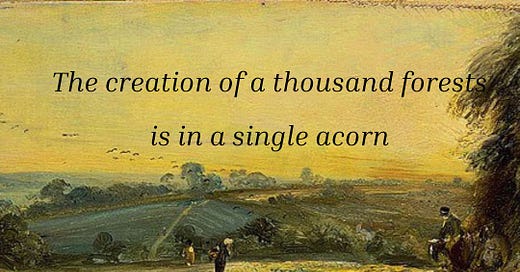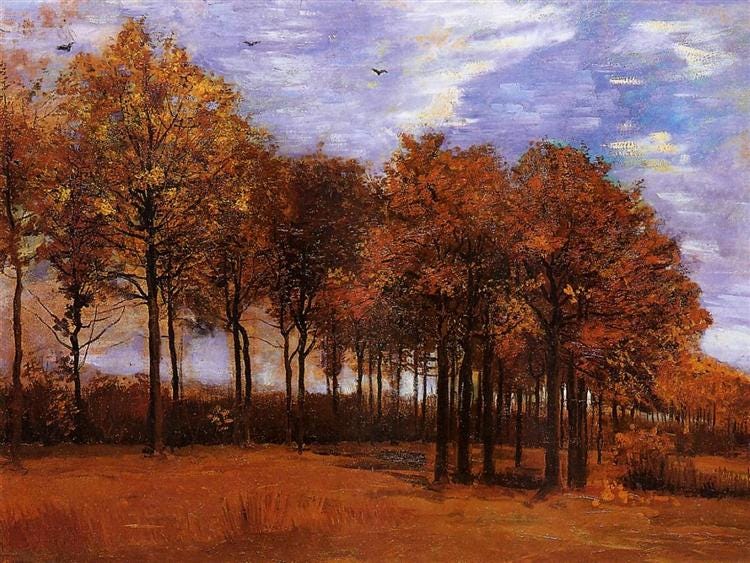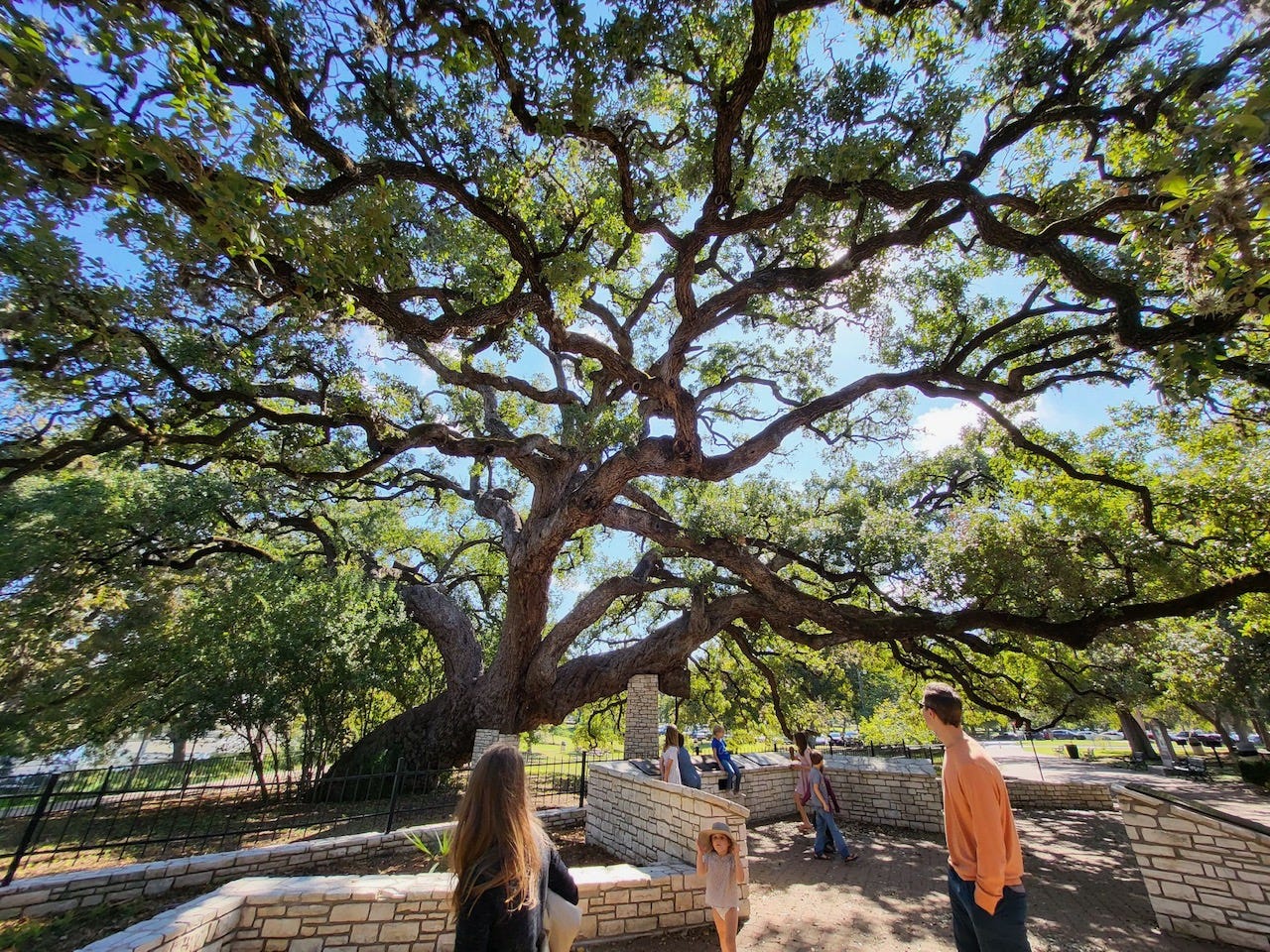Beauty in small things [no. 4]
The potential in seeds, Shakespeare, and music for sacred mornings
Walking daily amongst thousands of acorns beneath the oaks that line our nearby creek always reminds me of this idea: the potential in only one humble acorn is limitless. Every choice we make is like a seed: what seeds are you planting today?
Can one speak of the beauty of words and not immediately think of Shakespeare? My oldest son, 13, is reading one Shakespeare sonnet a week and I wondered for a while if he was getting very much out of it. Then he read sonnet 18 and I asked him for his thoughts. He replied, “Yeah, I’m not sure I agree with Shakespeare; Shall I compare thee to a summer’s day? It’s boiling hot, and I’m dying.” We were in the midst of triple-digit temperatures; let’s just say there’s nothing ‘temperate’ about our summers. (Perhaps if Shakespeare had been a Texan he would have chosen a spring day to compare his love to? We’ll never know.)
Sonnet 29 is one of my very favorites because it captures the human condition so eloquently and so well. How often do we wish to be as beautiful or as talented or as wealthy as another, and then, realizing that those things are worth little compared with the love we enjoy from someone dearly beloved by us, “that we would scorn to change our state with kings.” This poem is one to learn by heart.
Sonnet 29
When, in disgrace with fortune and men’s eyes,
I all alone beweep my outcast state,
And trouble deaf heaven with my bootless cries,
And look upon myself and curse my fate,
Wishing me like to one more rich in hope,
Featured like him, like him with friends possessed,
Desiring this man’s art and that man’s scope,
With what I most enjoy contented least;
Yet in these thoughts myself almost despising,
Haply I think on thee, and then my state,
(Like to the lark at break of day arising
From sullen earth) sings hymns at heaven’s gate;
For thy sweet love remembered such wealth brings
That then I scorn to change my state with kings.[If you want to see a masterful recitation of Sonnet 29 from Dame Judi Dench, watch this. So beautiful!]
During my junior year of high school, I had the opportunity to sing this beautiful song by Palestrina at St Stephen’s church here in Fort Worth. We stood under the stone arches and stained glass windows while our voices shimmered and shone through the transcendent notes of this wonderful song, Sicut cervus. Renaissance music like this is what I love to listen to during those sacred morning hours when all is still. My husband always plays Palestrina during our Sabbath mornings, and it is a beautiful family tradition.
Here in Texas, our autumns arrive a bit late, but when they show up, they are beautiful. The trees adorn themselves in scarlet and gold, and, yes, brown. Although, as Aimee wrote recently in her piece about the beauty of brown, brown can absolutely be beautiful: it really is all about the light. In the right light, brown is transformed into a shimmering gold.
We recently took a weekend trip to New Braunfels, and one of the highlights was this majestic 300-foot live oak tree called Founders’ Oak. It has been a meeting place for many community events for centuries, and after 1846, citizens of New Braunfels gathered annually on July Fourth beneath this tree to read the Declaration of Independence and to dedicate themselves to the principles for which it stands. Isn’t that a wonderful tradition?
The tree itself was so striking and stately; it’s hard to capture that in a photo. The massive, twisted trunk bends so low to the ground that it needs stone pillars to hold it up. It made me wonder: how can I support the beautiful, old things (like traditions) and people that are worth upholding?
I’d love to hear: what simple beauty have you noticed in your life recently?











I’m reading this post in early September. And where have I found Simple beauty? But I will change my answer to where I found Simple pleasure: returning home from 2 weeks away, on sea and near ocean, I inhaled the smell of our newly cut grass (done by a dear friend). And continued to note its scent as we unloaded baggage in multiple trips. Freshly mown grass reminds me of childhood. Of windows open to breeze. Of the summer season and how soon it passes. Even writing this gives me pause… thank you for your writing Shannon, I only discovered you tonight.
Love the reciting of Sonnet 29 by Judy Dench. Powerful thoughts from Shakespeare indeed. Thank you for your beautiful insights, Shannon.